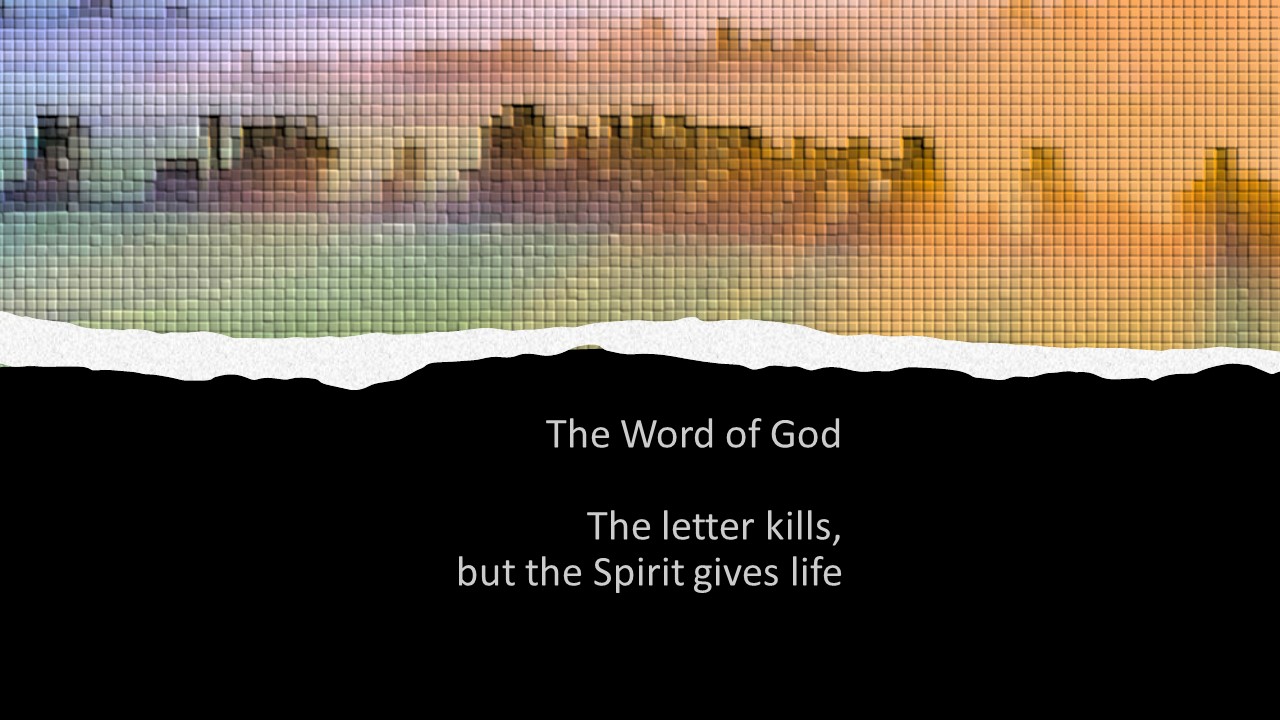Verses for Today
2 Cor 3:6 Who has also made us sufficient as ministers of a new covenant, ministers not of the letter but of the Spirit; for the letter kills, but the Spirit gives life.
2 Cor 3:14a But their thoughts were hardened; for until the present day the same veil remains at the reading of the old covenant.
Fellowship
Reading the Bible is a necessary practice for all believers. 2 Timothy 3:16-17 says that, “All Scripture is God-breathed and profitable for teaching, for conviction, for correction, for instruction in righteousness, That the man of God may be complete, fully equipped for every good work.” Therefore, what is found in the Bible is the best content available in the whole world. Do not think that you can scroll on your electronic device until you find something better than what is found in the Bible; you cannot. We wholeheartedly recommend the reading of the Bible.
Having said this, we have to know that there are two ways to take the Bible into us. One way results in life and the other way results in death. Let us check our experience. Why is it that we sometimes don’t delight in reading the Bible as much as we should? If the Bible is so rich in content, why is it that it can sometimes even give us a dead feeling? Some ardent studiers of the Bible can even become enemies of God and begin to breathe out threatening and murder. This is because, when taken in for mere knowledge, the letter of the Bible can become death to us.
On the contrary, when we pray to contact Jesus Christ who is the life-giving Spirit, the words of the Bible can become spirit and life to us. We experience something like a flowing river, refreshing us and supplying us. One way is to take the words for knowledge, and this results in death. This is just like Adam and Eve taking from the tree of the knowledge of good and evil. The other way is to come to the Lord Jesus while we read, seeking to receive life. This is just like man coming to eat of the tree of life.
As Paul said of the Jews, there is a veil upon their heart in the reading of the Scriptures (2 Cor. 3:14). They are veiled by their tradition and by their natural concepts. In their experience the Bible thus becomes a book of dead letters. Like the ancient Pharisees, scribes, and Judaizers, they handle the Word without directly contacting the Lord. Instead of exercising their spirit, they rely on their natural understanding. Furthermore, they are often zealous to maintain their religious tradition. But whenever we come to the Word, we need to contact the Lord. As we come to the Lord in the Word, we need to hunger and thirst for Him and seek to enjoy Him. This seeking after the Lord is well expressed in the lines of hymn 812:
I come to Thee, dear Lord,
My heart doth thirst for Thee;
Of Thee I’d eat, of Thee I’d drink,
Enjoy Thee thoroughly.Just to behold Thy face,
For this my heart doth cry;
I deeply long to drink of Thee
My thirst to satisfy.In our reading and pray-reading of the Word, we should seek the Lord’s glorious, radiant face. Then in our experience the Word of God will be a source of life supply and nourishment… (Life Study of Exodus, Msg 56, Section 4)


